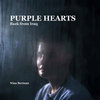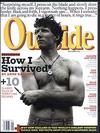The Writer’s Almanac. I’ve mentioned it before. Praised it. I like it. Appeals to my “finer things in life” side. (Yes, there’s more to the world than “Survivor” (finale tonight!), “CSI,” and “Six Feet Under” (the last viewed on DVD only).
I get The Writer’s Almanac email every day. Often I can’t bring myself to open it because of the possible emotional and time commitment. When I do, though, I’m occasionally surprised by how fitting the poem for the day seems to be. Not the predictable ones, like Thanksgiving-themed verse during Thanksgiving week. But shots in the dark that just fall squarely on some event in my life, something I’m thinking of. For instance, the poem “The Longly-Weds Know,” which the almanac sent out December 2, the day after my wedding anniversary.
And then there’s today’s almanac. The poem is “1100,” by Emily Dickinson. I hardly know from Emily Dickinson, though if pressed I might be able to tell you that she came up with the line “hope is the thing with feathers” and that Julie Harris played her on stage and small-screen. I was puzzled by the title, having been so Dickinson-deprived that I did not know her poems were not titled, but numbered. With Max’s passing on my mind, the poem’s really a bull’s-eye. It starts:
“The last Night that She lived
“The last Night that She lived
It was a Common Night
Except the Dying – this to Us
Made Nature different.
We noticed smallest things –
Things overlooked before
By this great light upon our Minds
Italicized – as ’twere. …”
Go and read the rest.


